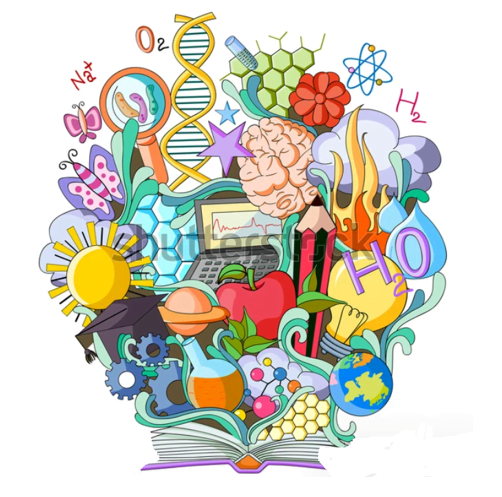The NEET (UG) CSP is designed for students (both 11th and 12th) who want to appear for the NEET(UG) Entrance test to pursue an undergraduate degree in any medical field of their choice. The National Eligibility cum Entrance Test, or NEET (UG), is a national pre-medical entrance exam for students who wish to pursue medical (MBBS), dental (BDS), and AYUSH (BAMS, BUMS, BHMS, etc.) courses in government and private institutions in India. NEET (UG) preparation accounts for one of the crucial academic phases of a student’s life and now it’s time that you begin your preparation for NEET (UG) in full swing.
Your study materials play an important role in your NEET entrance examination preparation. For an exam as competitive as NEET (UG), when it comes to books, many students think the more the better. This may be one of the problems aspiring students face today. You do need a sufficient number of books throughout your NEET (UG) preparation but the right book/study package provided by many leading institutions is the answer. Let’s look at the NEET (UG) exam pattern to help you strategize your NEET(UG) entrance preparation better.
NEET Biology 2024 Exam Pattern Highlights
| Features | Highlights |
|---|---|
| Mode of Examination | Offline |
| Total Time Duration |
3 hours and 20 minutes |
| Sections | Biology (Botany and Zoology) |
| Total Number of Questions | 100 Questions (Zoology – 35 + 15 Botany – 35 + 15) |
| Total Marks of Examination | 360 Marks |
| Medium | English, Hindi, Assamese, Bengali, Gujarati, Kannada, Malayalam, Marathi, Odia, Punjabi, Tamil, Telugu, and Urdu. |
| Marking Scheme | +4 for each correct answer -1 for an incorrect answer. |
Biology Books and Materials:
- Biology by NCERT
- Biology NCERT Exemplar
- MTG Objective NCERT at your FINGERTIPS – Biology (MTG Editorial Board)
- Previous year papers (Any publication: Disha, Arihant, MTG Objective, etc)
NEET Syllabus
UNIT 1: Diversity in Living World
- What is living?; Biodiversity; Need for classification;; Taxonomy & Systematics; Concept of species and taxonomical hierarchy; Binomial nomenclature;
- Five kingdom classification; salient features and classification of Monera; Protista and Fungi into major groups; Lichens; Viruses and Viroids.
- Salient features and classification of plants into major groups-Algae, Bryophytes, Pteridophytes, Gymnosperms (three to five salient and distinguishing features and at least two examples of each category);
- Salient features and classification of animals-nonchordate up to phyla level and chordate up to classes level (three to five salient features and at least two examples).
UNIT 2: Structural Organisation in Animals and Plants
- Morphology and modifications; Tissues; Anatomy and functions of different parts of flowering plants: Root, stem, leaf, inflorescence- cymose and recemose, flower, fruit and seed (To be dealt along with the relevant practical of the Practical Syllabus) Family (malvaceae, Cruciferae, leguminoceae, compositae, graminae).
- Animal tissues; Morphology, anatomy and functions of different systems (digestive, circulatory, respiratory, nervous and reproductive) of an insect (Frog). (Brief account only)
UNIT 3: Cell Structure and Function
- Cell theory and cell as the basic unit of life; Structure of prokaryotic and eukaryotic cell; Plant cell and animal cell; Cell envelope, cell membrane, cell wall; Cell organelles-structure and function; Endomembrane system-endoplasmic reticulum, Golgi bodies, lysosomes, vacuoles; mitochondria, ribosomes, plastids, microbodies; Cytoskeleton, cilia, flagella, centrioles (ultrastructure and function); Nucleus-nuclear membrane, chromatin, nucleolus.
- Chemical constituents of living cells: Biomolecules-structure and function of proteins, carbohydrates, lipids, nucleic acids; Enzymes-types, properties, enzyme action, classification and nomenclature of anzymes.
- B Cell division: Cell cycle, mitosis, meiosis and their significance.
UNIT 4: Plant Physiology
- Photosynthesis: Photosynthesis as a means of Autotrophic nutrition; Site of photosynthesis take place; pigments involved in Photosynthesis (Elementary idea); Photochemical and biosynthetic phases of photosynthesis; Cyclic and non-cyclic and photophosphorylation; Chemiosmotic hypothesis; Photorespiration \(\mathrm{C} 3\) and \(\mathrm{C} 4\) pathways; Factors affecting photosynthesis.
- Respiration: Exchange gases; Cellular respiration-glycolysis, fermentation (anaerobic), TCA cycle and electron transport system (aerobic); Energy relations- Number of ATP molecules generated; Amphibolic pathways; Respiratory quotient.
- Plant growth and development: Seed germination; Phases of Plant growth and plant growth rate; Conditions of growth; Differentiation, dedifferentiation and redifferentiation; Sequence of developmental process in a plant cell; Growth regulators-auxin, gibberellin, cytokinin, ethylene, \(\mathrm{ABA}\);
UNIT 5: Human Physiology
- Breathing and Respiration: Respiratory organs in animals (recall only); Respiratory system in humans; Mechanism of breathing and its regulation in humans-Exchange of gases, transport of gases and regulation of respiration Respiratory volumes; Disorders related to respiration-Asthma, Emphysema, Occupational respiratory disorders.
- Body fluids and circulation: Composition of blood, blood groups, coagulation of blood; Composition of lymph and its function; Human circulatory system structure of human heart and blood vessels; Cardiac cycle, cardiac output, ECG, Double circulation; Regulation of cardiac activity; Disorders of circulatory system-Hypertension, Coronary artery disease, Angina pectoris, Heart failure.
- Excretory products and their elimination: Modes of excretion- Ammonotelism, ureotelism, uricotelism; Human excretory system structure and function; Urine formation, Osmoregulation; Regulation of kidney function-Renin-angiotensin, Atrial Natriuretic Factor, ADH and Diabetes insipidus; Role of other organs in excretion; Disorders; Uraemia, Renal failure, Renal calculi, Nephritis; Dialysis and artificial kidney.
- Locomotion and Movement: Types of movement- ciliary, flagellar, muscular; Skeletal muscle- contractile proteins and muscle contraction; Skeletal system and its functions (To be dealt with the relevant practical of Practical syllabus); Joints; Disorders of muscular and skeletal system-Myasthenia gravis, Tetany, Muscular dystrophy, Arthritis, Osteoporosis, Gout.
- Neural control and coordination: Neuron and nerves; Nervous system in humans central nervous system, peripheral nervous system and visceral nervous system; Generation and conduction of nerve impulse;
- Chemical coordination and regulation: Endocrine glands and hormones; Human endocrine system-Hypothalamus, Pituitary, Pineal, Thyroid, Parathyroid, Adrenal, Pancreas, Gonads; Mechanism of hormone action (Elementary Idea); Role of hormones as messengers and regulators, Hypo-and hyperactivity and related disorders (Common disorders e.g. Dwarfism, Acromegaly, Cretinism, goiter, exopthalmic goiter, diabetes, Addison’s disease).
(Imp: Diseases and disorders mentioned above to be dealt in brief.)
